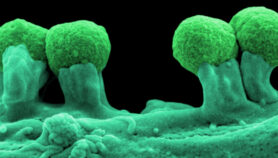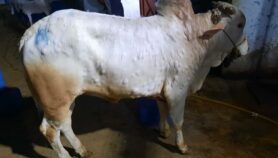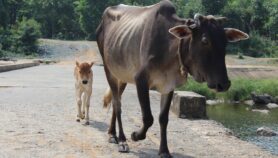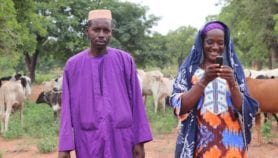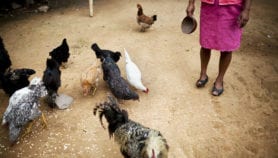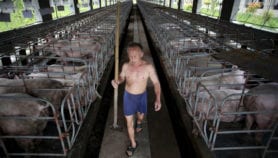Send to a friend
The details you provide on this page will not be used to send unsolicited email, and will not be sold to a 3rd party. See privacy policy.
Below is a round up of news from or about Sub-Saharan Africa for the period 22 October–8 November 2007.
Free bednets and malaria drugs save Zanzibari children
A report in PLoS Medicine has found that child deaths from malaria in Zanzibar were slashed by up to half within two years of artemisinin-based combination therapies being provided for free. The later introduction of long-lasting insecticide-treated bednets further decreased death rates. Researchers from Tanzania’s Ifakara Health Research and Development Centre and Zanzibar’s Research Triangle Institute were involved in the study. More>>
New drug combo cuts mother and child HIV drug resistance
Research led by Benjamin Chi of Zambia’s Centre for Infectious Disease Research has found that giving HIV-infected pregnant women a single dose of tenofovir and emtricitabine at delivery reduces the risk of mothers — and those children that are infected with HIV from their mothers — becoming resistant to non-nucleoside reverse transcriptase inhibitor drugs. The research was published in The Lancet. More>> (free registration required)
Praise for Kenyan fibre optics network
Kenya’s year-long project to connect all its districts by fibre optic cables was praised by International Telecommunication Union secretary-general Hamadoun Touré. Kenya also plans to start laying a fibre optic cable to the United Arab Emirates this month to reduce dependence on the almost-complete Eastern Africa Submarine System, as some investors are arguing for restricted Internet access. More>> (free registration required)
Severe leishmaniasis on the increase in Somalia
A five-year study at a Médecins Sans Frontières (Doctors Without Borders) clinic in Somalia’s Bakool region suggests both a rapid increase in visceral leishmaniasis and substantial under-reporting of the disease. A report in the PLoS Journal of Neglected Diseases documents a seven-fold increase in the parasitic disease between 2002 and 2006 but says bednets could combat both malaria mosquitoes and sand flies. More>>
Male rape in South African prisons spreading HIV
A report by a South African nongovernmental organisation says the raping of teenage inmates by older male prisoners — and its denial by both parties — is one of the factors driving the HIV epidemic. The report, from the Centre for the Study of Violence and Reconciliation, says the state refuses to provide inmates with condoms, counselling or HIV tests and only offers limited access to antiretroviral drugs. More>>
Malaria ‘helped sickle cell gene travel eastwards’
Malaria and migration have been identified as reasons for the rapid spread of the sickle cell gene across central Africa. The sickle cell gene offers some protection against malaria. Muntaser Ibrahim and colleagues from the Institute of Endemic Disease at Sudan’s University of Khartoum were among the researchers who tracked the gene from west to east Africa in a study published in the European Journal of Human Genetics. More>>
Farmers could harness high prices from breeding programmes
The International Livestock Research Institute meets in Nairobi this month to address how the rising prices for livestock feed could help rather than hurt the world’s subsistence farmers. By using specific breeding programmes for locally suitable breeds and new DNA-based technologies, the 600 million livestock keepers in poor countries could meet global demand. More>>
South Africa looks to the moon
The Hartebeesthoek Radio Astronomy Observatory will hold a workshop this month in Matjiesfontein on the lunar laser being developed at South Africa’s Council for Scientific and Industrial Research. The laser is part of the Southern Africa Development Community’s push to increase space science capacity. More>>



